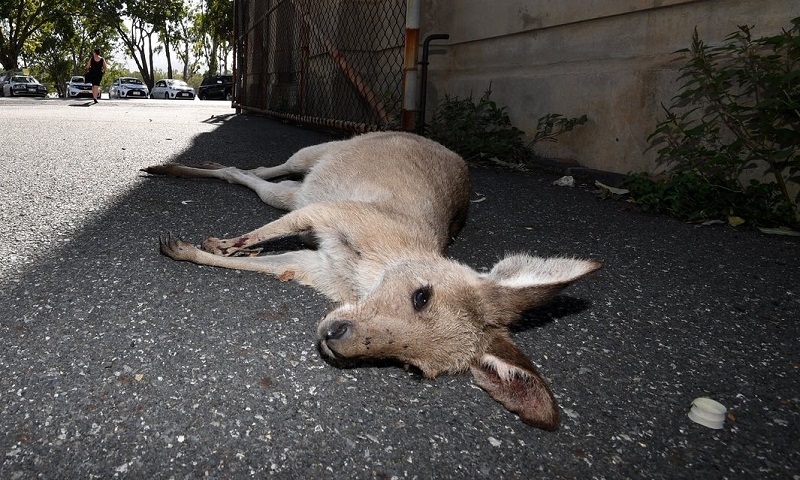Climate change impacting ‘most’ species on Earth, even down to their genomes

Three recent studies point to just how broad, bizarre, and potentially devastating climate change is to life on Earth. And we’ve only seen one degree Celsius of warming so far. Climate change is rapidly becoming a crisis that defies hyperbole. For all the sound and fury of climate change denialists, self-deluding politicians and a very bewildered global public, the science behind climate change is rock solid while the impacts – observed on every ecosystem on the planet – are occurring faster in many parts of the world than even the most gloomy scientists predicted. Given all this, it’s logical to assume life on Earth – the millions of species that cohabitate our little ball of rock in space – would be impacted. But it still feels unnerving to discover that this is no longer about just polar bears; it’s not only coral reefs and sea turtles or pikas and penguins; it about practically everything – including us. Three recent studies have illustrated just how widespread climate change’s effect on life on our planet has already become. “It is reasonable to suggest that most species on Earth have been impacted by climate change in some way or another,” said Bret Scheffers with the University of Florida. “Some species are negatively impacted and some species positively impacted.” Scheffers is the lead author of a landmark Science study from last year that found that current warming (just one degree Celisus) has already left a discernible mark on 77 of 94 different ecological processes, including species’ genetics, seasonal responses, overall distribution, and even morphology – i.e. physical traits including body size and shape. Woodland salamanders are shrinking in the Appalachian Mountains; the long-billed, Arctic-breeding red knot is producing smaller young with less impressive bills leading to survival difficulties. Marmots and martens in the Americas are getting bigger off of longer growing seasons produce more foodstuffs, while the alpine chipmunks of Yellowstone National Park have actually seen the shape of their skulls change due to climate pressure. Life is proving just as strange under our new climate regime when it comes to genetics. Pink salmon genetics are evolving for earlier migrations – with fewer salmon encoding their genes for earlier migrations. In making its way north, the southern flying squirrel has begun hybridising with the northern flying squirrel. The water flea has seen its genetics change over just a few decades to respond to higher water temperatures. But the fact that so many species are undergoing genetic changes doesn’t mean they are successfully adapting to our warmer world. “In many instances genetic diversity is being lost due to climate change, not just in nature but also in resources that human’s depend on such as crops and timber,” Scheffers said. “It is important to not confuse species responses and adaptation as an indicator that everything will be okay.” Scheffers and his colleagues’ findings are furthered by a study in Nature Climate Change this February that found that 47 percent of land mammals and 23 percent of birds have already suffered negative impacts form climate change. In all, nearly 700 species in just these two groups are flagging under climate change, according to this research.

